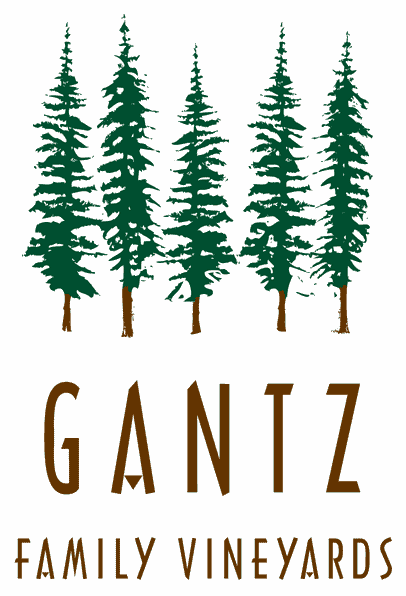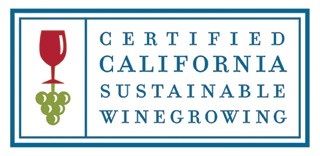Our journey to understanding what being a sustainable Sonoma County vineyard means continued this week as we participated in Sustainability Self-Assessment Workshops offered by the California Sustainable Winegrowing Alliance (CSWA). Celeste took part in a workshop at DeLoach Vineyards and Angelina participated in an online webinar. This journey was inspired by the Sonoma County Winegrowers commitment to becoming the country’s first 100 percent sustainable wine region within five years. As growers in Sonoma County, we wanted to understand how this initiative applied to us.
The CSWA provides the only statewide, winegrape-specific certification program, known as Certified California Sustainable Winegrowing (CCSW), and these workshops give a good overview of the process of self-assessment and certification. Here are some things we learned:
- CSWA focuses on the “Three E’s of Sustainability”: growing and winemaking practices that are Environmentally sound, socially Equitable and Economically feasible. Essentially, they advocate vineyard and winery practices that respect the land, the people and the business.
- Rather than reaching a finish line of “sustainable,” the program focuses on a cycle of continuous improvement. You use their resources to assess your sustainable practices, come up with an action plan to improve and then implement the changes. And then re-assess.
- Not all “sustainable” practices are “biodynamic” or “organic”; not all practices that define the other two are involved in being sustainable.
- Self-assessing your sustainable practices allows you to look at your business holistically and identify areas to improve efficiency and save money.
- Over 1,800 California vineyards and wineries have participated in the self-assessment.
- The CCSW provides a 400-page workbook explaining 200 best practices that vintners and growers can use to assess their sustainable practices.
We know…whew!
Online Self-Assessment
“[The workbook] can look very intimidating when you look at it,” said Jodi Wilson, project coordinator for CSWA who led the online webinar. “The online tool is a lot more streamlined. You don’t have to look at all the content if it’s not useful for you.”
Jodi took us through the online tool, which did eliminate the overwhelming factor of looking at a 400-page book. The tool takes you through the various sustainable components step-by-step and, since different practices apply to vineyards and wineries, only ask you to fill in the parts that apply to you. Each step provides:
- As much info as you could ever want to assess yourself.
- Info about whether that step is necessary for certification
- Areas to add notes and documents.
- An area to include an action plan.
The self-assessment will make us sit down and think about each aspect of running our business. While it won’t be a quick process of filling it in, the online form will make it easy to check and gather data, keep notes and compare our progress from year to year.
Next Step: Certification
According to a survey done by the Wine Institute last year, 34 percent of wine consumers consider the environment when making their wine purchases. One-third!! Becoming sustainably certified lends creditability to a “sustainable” claim.
Jodi explained the process to becoming certified through the Certified California Sustainable Winegrowing (CCSW) program:
- Vineyards must meet 50 prerequisites of sustainability. Wineries must meet 32.
- A third-party accredited auditor verifies those prerequisites. Those seeking certification must find their own third-party auditor, and costs can vary widely, based on how many “units” (vineyards and wineries) being audited. An estimate for the assessment of one vineyard is between $500-$1500 for the first year and $500 for subsequent years.
- Upkeep of the certification requires self-assessment and a phone call with the auditor every year and an onsite audit every three years.
- Once certified, vineyards and wineries can use the CCSW logo on signage and secondary packaging. Currently, the logo cannot be placed on bottles.
- It costs $250 to enroll in the CCSW certification program and $150 for administrative costs in subsequent years.
We’re going to start the online assessment and we’ll let you know how it goes. We’ve not decided whether to seek certification, but we’re interested in the results of the assessment.
“Start the self-assessment and see how it goes,” Jodi encouraged. “See if certification is for you.”
--------------------------------------------------------------------------------
Becoming Sustainably Certified with CCSW
Curious about becoming sustainably certified? The CCSW website is rich with information. On it, you can:
- Sign up to attend a free self-assessment workshop or webinar.
- Check out the workshop presentation.
- Take the online assessment. You will need to obtain a username and password.
- Find a checklist for becoming sustainably certified.



